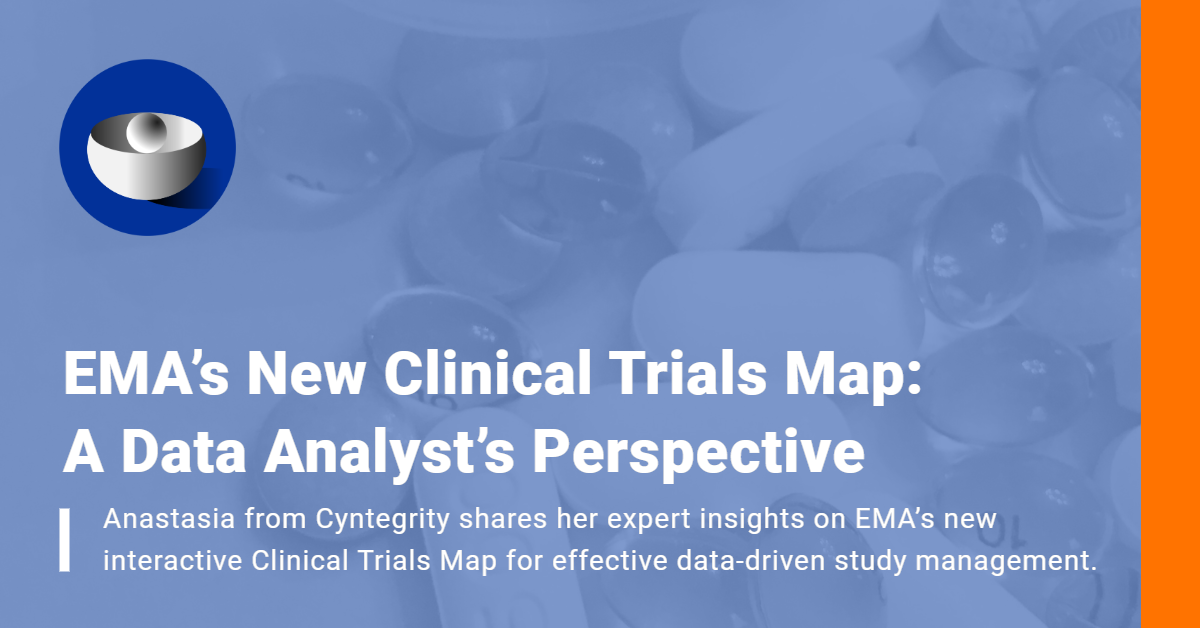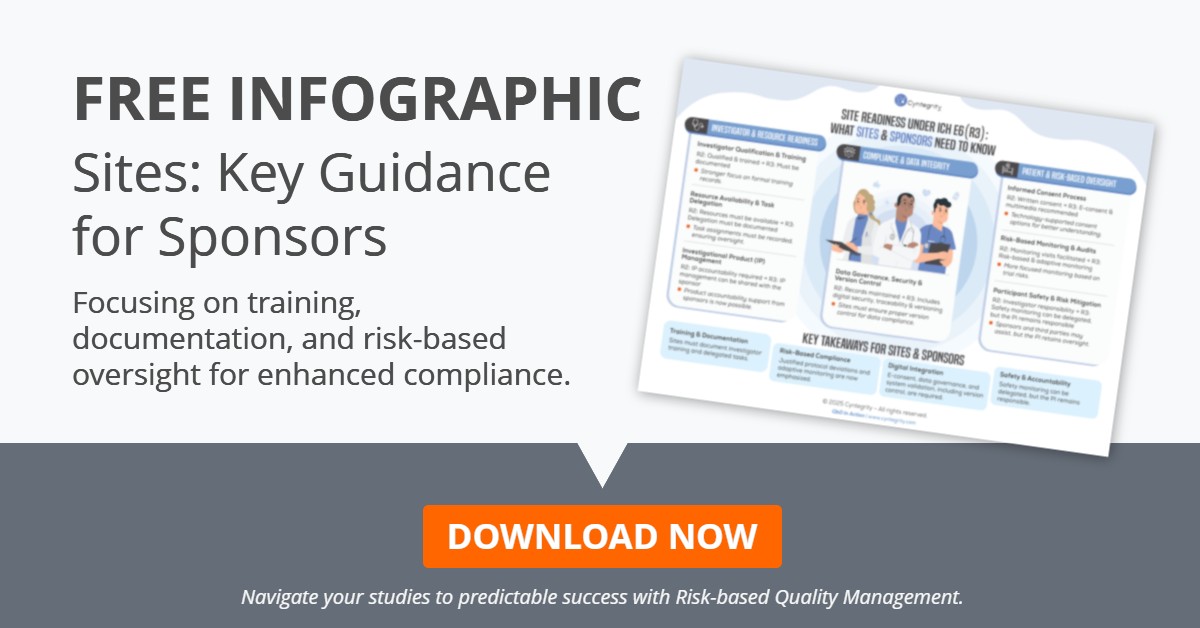Keep FDA in the Loop
In its ongoing efforts to maintain safety and integrity during clinical trial conduct while combating the novel coronavirus, the FDA has released a supplementary set of recommendations entitled Statistical Considerations for Clinical Trials During the COVID-19 Public Health Emergency. The June guide, published to “describe the Agency’s current thinking” on the topic of COVID-19 impacted clinical trials, builds on the earlier released Guidance on the Conduct of Clinical Trials, which focused primarily on the Agency’s concerns about patient safety in response to COVID-19 at the onset of the pandemic.
In terms of its effect on BioPharma sponsors and the clinical trials themselves, the FDA recommendation can be broken down into two key areas:
- Checking and maintaining trial integrity
- Proactively adjusting trial analysis strategies to ensure trial data validity
1. Checking and Maintaining Trial Integrity
“Modifications to the analysis of the primary or key secondary endpoints should be reflected in an updated statistical analysis plan before locking the database and before any modifications to unblinded interim analyses”
When it comes to trial integrity, the FDA voices concern that the public health measures already in place against COVID-19 will negatively affect clinicians’ ability to collect viable data, especially if trial subjects are unable to visit clinical sites for analysis and data collection.
To correct this, the FDA suggests that sponsors need to proactively address the impact of COVID-19 on current trial objectives. To do so, sponsors must update their statistical plans if primary or secondary endpoints have been modified as a result of factors caused by COVID19.
Where they intend to modify the protocol, the FDA states that clinical sponsors must ensure that they do not introduce bias across treatment arms. Similarly, they must avoid stopping a trial based on bias or interim knowledge of other treatment arms.
To avoid compromising blinded studies and ensure both trial integrity and patient safety, the FDA has recommended that each trial should implement a Data Monitoring Committee with access to the unblinded data, allowing it to be stopped, if necessary, without negative effect to the data collected.
The FDA also suggests that summaries pooled over treatment arms, including information on missing data, discontinued or interrupted participant treatments, participant trial withdrawals, endpoints and information not specific to individuals, i.e. all data appropriate for consideration when making modifications to a trial, should be included.
In Summary Sponsors Should:
- Implement a Data Monitoring Committee
- Proactively address the COVID-19 impact and revise their statistical plans accordingly
- Avoid the introduction of bias across treatment arms if protocol gets modified
- Reconsider stopping a study because of bias or interim knowledge
- Include complete summaries over treatment arms, incl. presumptive invalid data
2. Trial Analysis Strategies
“For sponsors considering stopping a trial and conducting a final analysis, a major consideration is the loss of statistical power from a smaller sample size or less follow-up time than was anticipated”
The bulk of the June recommendation focused on trial analysis design, emphasizing the FDA’s belief that multiple strategies are necessary to mitigate against the loss of data and to assess data collected from trials that have been affected by COVID-19 and were closed early.
In the Trial Mitigation and Analysis Strategies section of the guide, the FDA emphasizes the importance of participant data collection for post-baseline events. This recommendation points to the usefulness of incorporating the participant data into the analysis strategies and so being able to address potential biases or perform sensitivity analyses related to the impact of COVID-19.
To compensate for the loss of statistical power in closed studies, the FDA cites the use of power assessments as a method to estimate the power of a modified study. Where trials with limited interim data collection have been closed, or are in danger of closing early, the guidance further suggests researchers to assess the data collected by implementing interim data collection where it had not been previously planned.
Also part of the latest FDA recommendations were considerations such as the possibility to continue enrollment and extend follow-up to attain more events once the impact of COVID-19 has passed. Extending follow-up of an event-driven trial would help overcome the loss of information caused by the impact of the pandemic.
To avoid bias introduced by sites that were closed because of COVID-19, the FDA recommends to exclude all related participants who were scheduled for ascertainment. Where this approach results in a significant loss of information, the agency suggests sponsors to consider alternative endpoint ascertainment methods or extend the trial enrollment, so that statistical power can be maintained. The FDA stressed at length, that the decision to exclude participants should not be based on post-baseline data that can reveal treatment information.
Furthermore, the agency suggests the use of alternative ascertainment methods, such as replacing in-person endpoint ascertainment based on performance outcomes or interview-based clinician-reported outcomes with remote ascertainment.
Finally, the FDA addresses the modification and ascertainment of trial endpoints and suggests sponsors to consider options such as replacing in-person endpoint ascertainment based on performance outcomes or interview-based clinician-reported outcomes with remote ascertainment procedures.
In Summary COVID-19 Impacted Clinical Trials:
- Already collected trial data should be assessed regardless of any impact
- Participant data collection is even more so crucial to post-baseline events
- Statistical Power assessments should be done for all modified trials
- Continuation of enrollment and follow-up post-pandemic impact is encouraged
- Ascertainment should exclude participants of COVID-19 impacted sites
- Instead, alternative (remote) endpoint ascertainment methods should be considered
As an overall observation, the FDA made it very clear that any modification, either to the clinical protocol or to the statistical analysis, should be done in close consultation with the relevant FDA review division.






